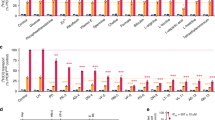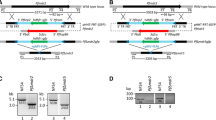The elucidation of the molecular details of drug resistance phenomena is a very active area of research that crosses many disciplinary boundaries. Drug resistance is due to altered drug-target interaction, and/or dysregulated signaling related to cell growth and death. Since many drugs need to rapidly diffuse into and within cells in order to find their targets, and since transmembrane ion transport is an important facet of cellular signaling, it is not surprising that membrane transport phenomena have been implicated in the evolution of drug resistance in tumor cells, bacteria, and intracellular parasites such as Plasmodium falciparum, the causative agent of the most lethal form of human malaria. The most infamous membrane transport protein involved in drug resistance is "MDR protein" or "P-glycoprotein" (Pgp),1 which was found to be overexpressed in drug-resistant tumor cells over 15 years ago, and which is representative of the ATP-binding cassette (ABC) superfamily that also includes the important cystic fibrosis transmembrane conductance regulator (CFTR) and sulfonyl urea receptor (SUR) ion channels. Availability of mouse and human Pgp cDNA rather quickly led to the identification of homologues in many species, including P. falciparum, and these were de facto assumed to be the ultimate determinants of drug resistance in these systems as well. However, research over the past 10 years has taught us that this assumption likely is wrong and that the situation is more complex. We now know that human Pgp plays a relatively minor role in clinically relevant tumor drug resistance, and that an integral membrane protein with no homology to the ABC superfamily, Pfcrt, ultimately confers chloroquine resistance in P. falciparum. Thus, the general hypothesis that membrane transport and membrane transport proteins are important in drug resistance phenomena remains correct, but at a genetic, biochemical, and physiological level we have recently witnessed a few very interesting surprises.
Similar content being viewed by others
Author information
Authors and Affiliations
Rights and permissions
About this article
Cite this article
Howard, E., Zhang, H. & Roepe, P. A Novel Transporter, Pfcrt, Confers Antimalarial Drug Resistance . J. Membrane Biol. 190, 1–8 (2002). https://doi.org/10.1007/s00232-002-1019-3
Received:
Issue Date:
DOI: https://doi.org/10.1007/s00232-002-1019-3




